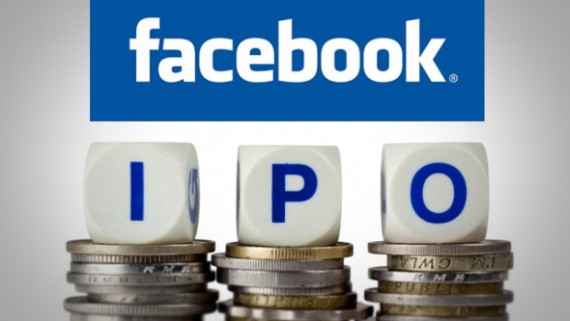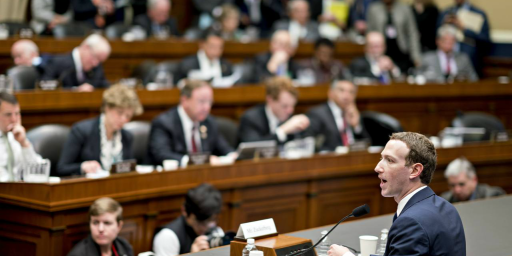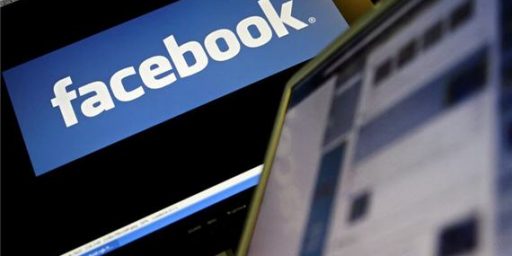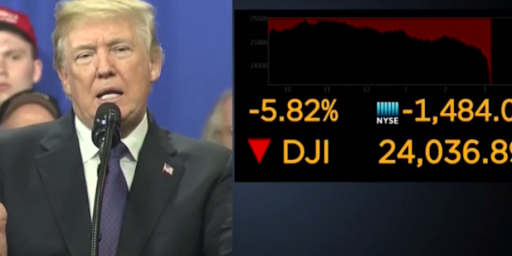What The Heck Happened With The Facebook IPO?
It was supposed to be the return of the heady days of the great Tech Industry IPOs. But, things didn't quite go as planned.
In the weeks leading up to Facebook’s long-anticipated Initial Public Offering, there was palpable excitement coming from many different sectors. On Wall Street, NASDAQ, the institutional banks, and investors and what seemed likely to be the biggest Tech IPO since Google went public. Enthusiasm for the deal was so great that white-shoe investment firms didn’t even seem to mind that Mark Zuckerberg showed up for the pre-IPO meetings in his trademark jeans-and-hoodie instead of a business suit. One week away from what ultimately become the IPO date, the initial offering price was raised to $38, with some analysts suggesting that the stock would rise to near $50 on the first day of trading. The media was loving the road show that Zuckerberg was putting on and spent endless hours talking about how rich he and his fellow Facebook shareholders, which included people like Bono of U2 and Shawn Fanning, who first became known as the man behind the file-sharing software Napster, would become the moment the stock went public. Even the State of California got in on the game as it calculated the tax revenue likely to be generated thanks to all the Facebook millionaires and billionaires that would soon be created. It was like the heady days of the dot-com boom all over again, but with different players.
That’s not to say that there weren’t warning signs out there long before IPO Day suggesting that the optimism about Facebook was misplaced. As anyone who uses Facebook knows, the company’s main source of revenue comes from the ads that appear as users browse the site. Thanks to all the data that users share, Facebook is able to sell uniquely targeted ads, which are considered far more valuable than generic online ads. The problem is that there was already data indicating that the click-through rate on Facebook’s ads was as low as it was for the web in general, perhaps worse considering that the younger demographic that Facebook caters to has always had an aversion to online advertising. (I don’t know about any of you other Facebook users, but I have never clicked on an ad I’ve seen on Facebook) Indeed, only a short time before IPO Day, but before the date had ultimately been announced, General Motors announced that it was discontinuing its online advertising venture with Facebook because research indicated that the ads were not a significant factor in driving customers to G.M dealerships. That was $10 million in ad revenue that Facebook would no longer be receiving. Considering that advertising constituted 85% of Facebook’s revenue in 2011, that was a fairly devastating act by one of America’s major corporations. Additionally, numerous people have pointed out that Facebook apparently has no strategy to monetize the mobile side of its site, and that numerous research showed that users would object strongly to ads showing up on the smartphones even when running Facebook’s app.
The naysayers were mostly ignored, though, and everyone marched happily toward IPO Day. The President of NASDAQ traveled all the way to Menlo Park, California where he was joined at 6:30am Pacific Time by Zuckerberg and nearly every other employee that works at the main office to watch Zuckerberg remotely ring the bell and open the trading day. In only a few short hours, after all, Facebook’s stock would officially go public.
Things didn’t exactly go as planned, though. An 11am ET official start to trading was delayed for a significant period of time, at first without any real explanation, and then it was said that NASDAQ’s systems had been unprepared for the deluge of orders, and changes to orders, that were coming in during the hours before the stock was scheduled to go public. When trading finally did begin last Friday around Noon, the story quickly transitioned from wondering how far about the IPO price shares of $FB would rise to wondering if it could stay about the $38.00 level for the day. After testing the level several times during the day, the stock ended up closing just barely above $38.00 thanks mostly to intervention by the consortium of banks who had underwritten the IPO. By Monday, it became clear that intervention was not going to continue, and the stock quickly plummeted below the $38.00 level. As of today’s close, Facebook stock stands at $32.00 per share, a decline of 15.8% from the IPO price in just 3 1/2 trading days.
It’s all left people wondering what the heck happened. Theoretically, an IPO price is supposed to be an honest evaluation of a company’s value on the open market and it’s rare that such a well known and large corporation would see its stock price fall below that price so quickly. Understandably, it’s already drawn the attention of regulators and a Senate committee, and, perhaps inevitably, there’s already been a lawsuit filed:
[W]ith lawsuits literally mounting by the hour, it seems anyone within an arms reach of this deal is going to have some serious explaining to do. While shareholder suits are commonplace and often frivolous, the problem with this grievance is that it’s grounded in populism, it’s easy to understand, it will get wide mainstream coverage, and it’s of interest to about one billion people.
As I write, shareholder suits have already been filed in New York and California. The State of Massachusetts has subpoenaed Morgan Stanley (MS), following reports that it allegedly only told a few of its best clients that its analyst was cutting his revenue outlook for the company. The entire underwriting syndicate — (GS), (JPM), (BAC), (BCS) — is being sued, as is Facebook’s newlywed CEO and several board members. In addition, the Nasdaq (NDAQ) has also been sued, and the SEC and FINRA are launching investigations. Congressional hearings and probes can’t be far off.
(I guess the only question is — will Zuckerberg wear his hoodie to the Congressional hearing?)
So, to get back to the question at hand, what the heck happened?
Well, Henry Blodget has a post up at Business Insider that paints a pretty ugly picture. Before we get to that, though, there’s the news he broke earlier today that the underwriters of the Facebook IPO had cut their forecasts for the company in the middle of the pre-IPO “roadshow.” Of course, nobody was informed of this fact. This alone may have serious legal consequences for the company and the underwriters because failure to disclose a material change in circumstances during the pre-IPO period could be a serious violation of Securities laws, and could potentially be the basis for civil fraud claims as well. In his follow-up post, Blodget goes into far more detail about the reason the underwriters cut their forecasts:
The analysts cut their estimates because a Facebook executive who knew the business was weak told them to.
Put differently, the company basically pre-announced that its second quarter would fall short of analysts’ estimates. But it only told the underwriter analysts about this.
The information about the estimate cut was then verbally conveyed to sophisticated institutional investors who were considering buying Facebook stock, but not to smaller investors.
The estimate cut appears to have influenced the investment decisions of at least some institutional investors, dampening their appetite for Facebook stock, and crucially, affecting the price at which they were willing to buy Facebook stock.
As I described earlier, at best, this “selective disclosure” of the estimate cut is grossly unfair to investors who bought Facebook stock on the IPO (or at any time since) and didn’t know about it.
At worst, it’s a violation of securities laws.
And Michael Arrington says that there’s more to come.
We’ll see, I suppose.
In the end, it seems clear to me that at the very least what we saw here is another example of the same kind of irrational exuberance that was behind the Dot Com Bubble and the Stock Market/Real Estate Bubble that was a large contributor to the collapse that came in 2008. As sexy as it might seem at the moment, and notwithstanding the fact that it very likely does have a promising future ahead of it, there’s simply no way that Facebook was worth what it was being valued at initially, never mind some of the obviously overly optimistic forecasts that we saw during the pre-IPO period about share prices hitting $50/share on Day One. That was obviously an absurd prediction. Of course, absurd investment predictions aren’t necessarily illegal or unethical. The problem that this entire transaction now faces is the allegation that there was material information about the company that was withheld from all but institutional investors. That’s another example of Wall Street at its worst. At the very least, this is going to lead to a long series of investigations. At worst, it’s going to lead with charges being filed against someone at some point.
One final note, I am not saying that Facebook is a doomed company. It could be the next MySpace, or it could be the next Google. If there’s anything that the last 20-odd years of the Tech business has shown us, it’s that sometimes even the most improbable ideas can lead to huge business success. Additionally, there’s no denying that Mark Zuckerberg and those that work under him have shown a singular talent for creating a site that people want to use, the only question is how they make money off that idea on a sustainable basis. However, I don’t think I was alone in being skeptical about the exuberance about Facebook finally becoming a publicly traded company, and I don’t think I’m alone in being unsurprised at how the initial roll out has been received by the people who actually have to risk their money on whether or not Mark Zuckerberg’s idea ends up being a long-term success or not.
Disclaimer: Nothing in this post is intended to be investment or legal advice of any kind, nor is it intended to create an attorney-client relationship between the author (or the site, its owner, or its other contributors) and any reader of this post. Persons interested in either legal or investment advice in connection with the issues raised herein are encouraged to consult their own investment adviser and/or attorney.
Photo via CBS News







Zuckerberg made a boatload of money and screwed everyone else involved.
Check his track record.
It’s what he does.
It’s what he’s always done.
@Hey Norm:
For obvious reasons I am not going to make any accusations, but that thought had occurred….
It’s worth noting that just a few months before the IPO Zuckerberg had apparently personally negotiated the purchased of Instagram for $1,000,000,000 without even informing the Board of Directors of what he was doing.
As Corporate Law Professor Stephen Bainbridge noted at the time, that’s not how things are supposed to work in a corporation.
Does Facebook’s business model make sense? Where exactly is the value – can all those eyeballs be successfully monetized?
I don’t know the answers to these questions. I suspect most of the people who bought Facebook stock don’t either.
The problem with the lawsuit is that Facebook’s ammended S-1 wasn’t vague at all:
It then went on for several pages explain exactly what they meant by that. This was all publically available at the beginning of May. Indeed, it was reported on by major financial news sources almost two weeks before the IPO:
http://blogs.ft.com/tech-blog/2012/05/facebook-admits-to-mobile-weakness/#axzz1viB00j8h
http://articles.businessinsider.com/2012-05-07/tech/31602869_1_zynga-facebook-linkedin
This information was freely available to anyone who was paying attention. The thing is, small investors should really not be buying IPOs, because it’s nearly impossible for a non-professional to properly evalute the value of an investment with absolutely no public track record. This story demonstrates what happens when casual investors try to.
And now they’re trying to blame Facebook for their own failure to do even basic due dilligence.
@Stormy Dragon:
Not an unfair point. Of course, as many of the commentators on CNBC, Bloomberg, and elsewhere remarked on IPO Day, the Facebook IPO was unusual in the amount of shares that were being made available to retail brokers (in other words, the sources form which non-institutional investors could purchase shares). In some sense, this was perhaps a sign that the institutional guys knew the hype was largely BS.
And, mind you, I am not saying that anything illegal happened.. But, there will clearly be investigations.
@anjin-san:
Well they are monetizing the eyeballs on their website at the very least. As I noted, though, it’s unclear how they can transition that to the people who access Facebook via a mobile app (which is something I am doing increasingly myself, actually). This isn’t an original insight on my part, but it’s perhaps the most important question facing the company in the future.
Look, this is a sign of a GOOD IPO. In the past, what you clearly had was underwriters conspiring to price an IPO at less than market value in order to give profits to favored investors. In this case, the company in question maxed out its capital.
We should be more concerned about IPOs where the share price immediately doubles. That is a better sign of manipulation.
So, some of the underwriters — who had the updated info, btw — took a bath, as did some of the initial investors who were hoping for some sort of free money. Well, boo hoo.
The purpose/defense of financial markets is to help businesses raise money through equity sales or loans for their operations. It is isn’t to create situations where favored investors can essentially get rich off stock price manipulations.
If you look at this from Facebook’s perspective, it was all good. And Facebook is, in the end, the one who creates jobs, adds value, and so on.
Why am I wrong?
@Bernard Finel:
I don’t disagree that perhaps it’s not a bad thing that a stock price is sticking relatively close to its IPO price instead of soaring to the sky. The last thing we need is another asset bubble, after all.
However, there does seem to be an open question now about how honest the underwriters and the company were being with non-institutional investors in the days leading up to the IPO. There may or may not be a legal issue here, I am not nearly well-schooled enough in Securities Law to speak to that. However, I can see a “fairness” issue here that kind of goes back to a lot of the issues that came to a head in the 2008 collapse.
More broadly, I do find the question of whether or not Facebook itself is the next Google or the next MySpace to be rather interesting.
@Stormy Dragon: Reporting that you are weak in mobile devices is not the same as witholding knowledge of a failure to meet forecasts. One does not necessarily lead to the other.
@Doug Mataconis:
If Hypothetical, Inc. discovers that for some reason an unusual number of their widgets are turning out left handed, they should announce that.
The problem here is that the lawsuit filers seem to be suggesting that the company also has an obligation to make sure that they’re personally aware of the left handed widget issue and that they understand the specific significance of that fact.
Which is their financial advisor’s duty. If they have one and they recommended buying Facebook, THAT’S who they should be suing. If they don’t, then it’s their own damn fault for risking their money on something they didn’t fully understand.
@Stormy Dragon:
I have not seen any of the Complaint’s filed in these various lawsuits (despite having looked for them online just a little bit ago) so I cannot comment on what claims they’re making or the legal merits of the same.
But, yea, I agree with your last paragraph completely.
@Ben Wolf:
As I said, there was a multi-page discussion following the mention of mobile weakness explaining all that. I linked to the actual report, go check out the management discussion starting on page 46.
@Stormy Dragon:
I’m not sure if this is what Ben is referring to or not, but there is has been a rumor floating out there since last night that FB is going to fall exceedingly short of earnings estimates for May.
I have doubts about how well they will be able to do that in the long run. Most people go to facebook to catch up with their friends, not to click on ads. If advertisers do not see ROI, they will vanish. GM bailing had to hurt, the auto industry seems like one that might resonate on Facebook.
See Barry Ritholtz. I can’t link easily from the phone. His charge is that this was not really an IPO. Employee shares had been resold, and were widely enough held that this was a secondary offering.
Pump and dump. Not that there’s anything necessarily illegal about that. Plus the first rule of any IPO for any investor, especially for non-institutional investors, is that of caveat emptor. The second rule is don’t forget rule No. 1.
@john personna:
I’ll go look for the article. It is true, though, that there is a secondary private market for shares in companies that aren’t publicly traded like Facebook was before last Friday.
Ritholtz: How Facebook Fucked Up Its Own IPO
Heh, Ritholtz’ title does not make it past your filter, in moderation.
John,
Under the circumstances, I approved it without editing 🙂
It’s a pretty good rant, and damning if only 1/2 true.
That Ritholtz (a lawyer) would say “they went public more or less unlawfully over the past two years” tells you that he’s pretty sure of himself.
@john personna:
I admittedly don’t know much about the whole “private” market in shares of non-public companies but for the most part, from what I know, it’s entirely unregulated, although some states (such as we do here in Virginia) have what are called “Blue Sky” laws that are supposed to at least require some disclosure between buyer and seller.
@Doug Mataconis: There’s a lot of stuff sloshing around on the private market for which it is indeed caveat emptor. See Pink Sheets. You can sell it (modulo Blue Sky laws) but you’ve opened yourself to a huge amount of liability as soon as anyone gets pissed with your company or your stock price.
I don’t have a lot of sympathy for the people who lost money – there were plenty of people out there who were saying “look behind the curtain. Not unlike the housing bubble and bust they were gambling, hoping to make a quick profit at the casino formerly known as Wall Street.
NASDAQ also screwed this offering. Orders not processed, quote computer down but the direct-linked high frequency traders still getting the info. Sounds ugly.
Lawsuits are one thing but Ritholz posted a letter from an institutional investor who ended with the comment they would be much slower in the future in getting into IPOs. There’s the big rub, uncertainty in the integrity of the market. Next IPO, anyone involved in this one will have to work harder to sell their snake oil.
So Facebook DOESN’T appear to be worth more than 100 billion dollars.
What a surprise. Even at the current rate the stock is overrated.
@Doug Mataconis: you seem to have missed Aswath Damodaran’s valuation. For those that have never heard of him, he is the best known guy — literally wrote the book — for Value Based Investment. Before the IPO he said “short Facebook, it’s overpriced”.
Looks like it’s still overpriced.
Of course there is risk for any investor purchasing any security, however an IPO presents more opportunity for “gamesmanship” than a simple transaction to purchase equities or bonds.
It’s becoming evident that Zuckerberg and his Facebook management team mishandled the IPO, and that they skated close to the edge on their disclosure requirements. In my opinion the SEC would be remiss if they didn’t investigate this IPO.
@Bernard Finel: “The purpose/defense of financial markets is to help businesses raise money through equity sales or loans for their operations.”
But we treat financial markets like it’s a lottery people are guaranteed to win. Once you get mass investment in the markets, it seems like they cease to function as a means to an end and become their own end.
Mike
@MBunge: There was a story on Business Insider you might be interested in reading. Damodaran held Apple for 15 years; only recently did he sell his stock. His reasoning: He didn’t like the types of people that were now investing (they’re not value-based investors, meaning they’re really gamblers/leaches in disguise).
Not long after he sold, Apple went nuts.
Doug,FYI , its Sean Parker and not Shawn Fanning wtih the napster background who became involved with FB.
The inanity of investing in Facebook is easily shown if you look at the price/earning ratio. It’s around 100.
Buying Facebook at its present price is like paying $2000 for a picture because even though it’s worth $20 now you hope it might be worth $2000 down the road. Nuts.